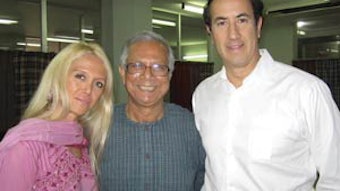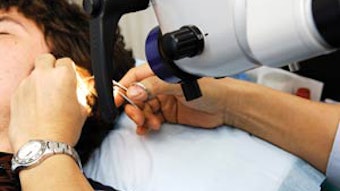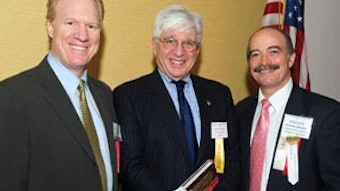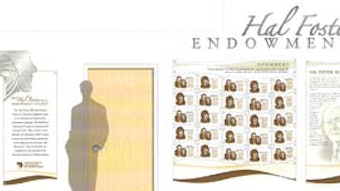Rules of Recruitment: the Interview
Benedict Ferro, International Medical Placement, Ltd., and Gene Corbett, Physician Finders This is the first in a series of Bulletin articles related to the recruitment process. The companies named above provide physician recruiting and consulting services to Academy members at a discounted price, and will return a portion of the proceeds to support AAO-HNS programs and services. This month’s question: Preparing for a physician candidate interview — what should an employer do to ensure a successful interview? Background Information Ben: Request and check references from the candidate before scheduling the visit and making travel arrangements. This allows you to confirm a potential fit with each prospective candidate before making a time and cost commitment to that person. Provide the candidate with all promotional literature and corresponding websites about your practice/community/hospitals. Those give the candidate an introductory view of who you are and allow them to assess the overall compatibility they believe they will have with your practice. Gene: When checking references, the program coordinator [at the candidate’s current institution] is typically accessible, while the program director can be difficult to reach. You can get a good feel for a candidate by speaking with staff personnel. If physician candidates treat the staff well and are well-liked, then they will do the same in your practice. If they don’t treat the staff well, you might be taking on a personality that may not work well in your office. Go to the source when conducting a reference check. Call some of the faculty whom the candidate may not have on the reference list. Itinerary Ben: Besides travel and accommodation arrangements, the employer should have a schedule of all events that occur during a candidate visit. This includes meeting staff, community and real estate tour, meals, and entertainment. Consider whether you want them to shadow you in surgery and/or during patient visits. Candidates’ spouses should always be included in a site visit whenever possible. Determining which events they will attend and keeping them engaged in the process is vital to the overall success of the visit. Gene: It is imperative to include the spouse in all itinerary planning. When planning a site visit, make sure that you understand what the spouse desires to see during their visit. The spouse may want to look at potential employment opportunities and perhaps you may be able to network and help set up an interview. The spouse may be interested in schools, recreational opportunities, housing, or other items. Perhaps there is some common thread the spouse may have with another member or spouse in your practice that can be exploited and used to your advantage. Don’t let the spouse have idle time and become bored. Use the assistance of a competent real estate agent. Typically, agents are well versed in their communities and can provide great tours supplying a multitude of information. Employment Agreement Ben: While most employers may not make a formal offer during an initial candidate visit, you will still want to have the ability to provide at least a sample contract to those candidates in whom you are interested before they return home. If that sample does not include specific compensation, you should share with the candidate both the salary and overall compensation potential of your opportunity. You want a candidate that you feel is a good fit for your practice to know both your interest level and the specifics of what you can offer before they leave. One of the biggest mistakes employers make is not having an employment offer in place before an interview occurs, and then after meeting a candidate they like and want to hire, lose valuable time while waiting for attorneys/accountants to create an offer. This leaves you vulnerable to losing the candidate to another employer and sends a message to the candidate that you are not really sure what you can offer. Gene: I agree with Ben wholeheartedly with this point. I can’t tell you how many times a candidate chooses another opportunity while waiting for a written contract from a different employer. The recruitment process starts with a written contract. If you don’t have a contract prepared, you are not ready to recruit. The conveying of a written contract is the confirmation of the offer. An oral offer is acceptable to discuss, but the written offer states “We want you to join us; here is proof of our intent.” The candidate is able to take that offer, read it over, have it reviewed, and ultimately make a decision to accept or reject based upon what is stated in the written offer. An employment agreement should be written in a manner that is balanced to both sides. An imbalanced agreement may lead to an imbalanced relationship, and ultimately, poor retention.

This is the first in a series of Bulletin articles related to the recruitment process. The companies named above provide physician recruiting and consulting services to Academy members at a discounted price, and will return a portion of the proceeds to support AAO-HNS programs and services.
This month’s question: Preparing for a physician candidate interview — what should an employer do to ensure a successful interview?
Background Information
Ben: Request and check references from the candidate before scheduling the visit and making travel arrangements. This allows you to confirm a potential fit with each prospective candidate before making a time and cost commitment to that person. Provide the candidate with all promotional literature and corresponding websites about your practice/community/hospitals. Those give the candidate an introductory view of who you are and allow them to assess the overall compatibility they believe they will have with your practice.
Gene: When checking references, the program coordinator [at the candidate’s current institution] is typically accessible, while the program director can be difficult to reach. You can get a good feel for a candidate by speaking with staff personnel. If physician candidates treat the staff well and are well-liked, then they will do the same in your practice. If they don’t treat the staff well, you might be taking on a personality that may not work well in your office. Go to the source when conducting a reference check. Call some of the faculty whom the candidate may not have on the reference list.
Itinerary
Ben: Besides travel and accommodation arrangements, the employer should have a schedule of all events that occur during a candidate visit. This includes meeting staff, community and real estate tour, meals, and entertainment. Consider whether you want them to shadow you in surgery and/or during patient visits. Candidates’ spouses should always be included in a site visit whenever possible. Determining which events they will attend and keeping them engaged in the process is vital to the overall success of the visit.
Gene: It is imperative to include the spouse in all itinerary planning. When planning a site visit, make sure that you understand what the spouse desires to see during their visit. The spouse may want to look at potential employment opportunities and perhaps you may be able to network and help set up an interview. The spouse may be interested in schools, recreational opportunities, housing, or other items. Perhaps there is some common thread the spouse may have with another member or spouse in your practice that can be exploited and used to your advantage. Don’t let the spouse have idle time and become bored. Use the assistance of a competent real estate agent. Typically, agents are well versed in their communities and can provide great tours supplying a multitude of information.
Employment Agreement
Ben: While most employers may not make a formal offer during an initial candidate visit, you will still want to have the ability to provide at least a sample contract to those candidates in whom you are interested before they return home. If that sample does not include specific compensation, you should share with the candidate both the salary and overall compensation potential of your opportunity. You want a candidate that you feel is a good fit for your practice to know both your interest level and the specifics of what you can offer before they leave. One of the biggest mistakes employers make is not having an employment offer in place before an interview occurs, and then after meeting a candidate they like and want to hire, lose valuable time while waiting for attorneys/accountants to create an offer. This leaves you vulnerable to losing the candidate to another employer and sends a message to the candidate that you are not really sure what you can offer.
Gene: I agree with Ben wholeheartedly with this point. I can’t tell you how many times a candidate chooses another opportunity while waiting for a written contract from a different employer. The recruitment process starts with a written contract. If you don’t have a contract prepared, you are not ready to recruit. The conveying of a written contract is the confirmation of the offer. An oral offer is acceptable to discuss, but the written offer states “We want you to join us; here is proof of our intent.” The candidate is able to take that offer, read it over, have it reviewed, and ultimately make a decision to accept or reject based upon what is stated in the written offer. An employment agreement should be written in a manner that is balanced to both sides. An imbalanced agreement may lead to an imbalanced relationship, and ultimately, poor retention.











